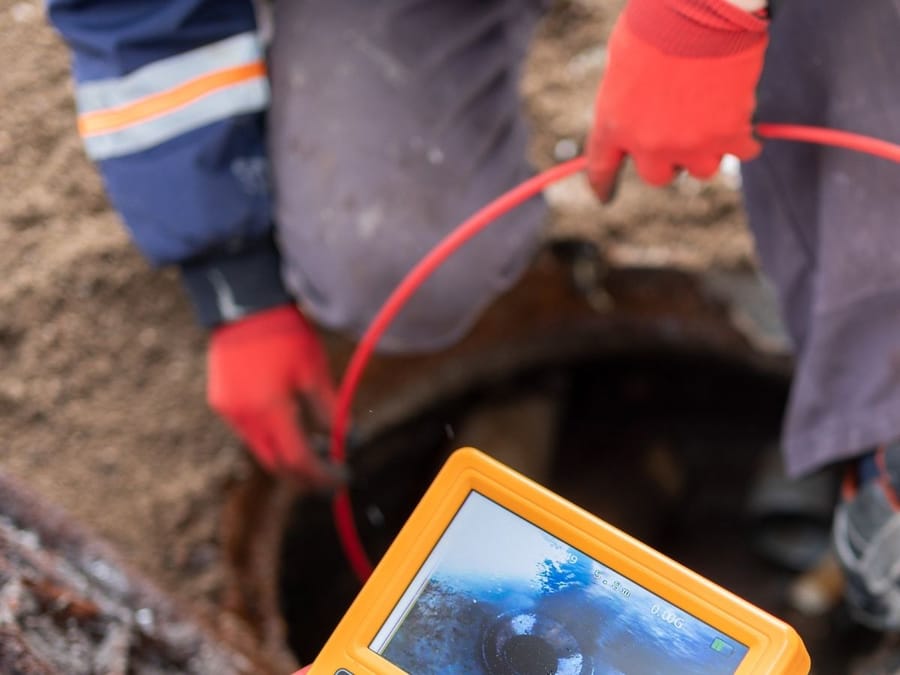The Homeowner’s Complete Guide to Backflow Prevention: Risks, Regulations & Maintenance

You probably don’t think about backflow often, but it can become a serious problem with major health consequences. In Tuscaloosa, where weather events and pressure fluctuations are common, homeowners are especially vulnerable. A reversed flow of water can contaminate your clean supply with harmful substances, and many residents don’t realize their home is at risk until it’s too late.
Understanding how backflow works, what the laws in Alabama require, and how to maintain your system can help protect your water and avoid fines or health concerns. In this guide, we’ll break down what causes backflow, how to prevent it, and why professional testing matters.
What Is Backflow and Why Is It Dangerous?
Backflow occurs when a sudden change in water pressure causes water to reverse its flow—drawing contaminated water into your home’s clean supply. It can happen in two ways: backpressure, when your home’s system has higher pressure than the municipal supply, or backsiphonage, when public pressure suddenly drops, often due to fire hydrant use, water main breaks, or high demand.
Contaminants like pesticides, bacteria, sewage, or industrial chemicals can enter your drinking water through unprotected plumbing fixtures or irrigation systems. The health consequences can range from short-term illness to long-term exposure to toxins, making this more than just a plumbing issue; it’s a serious safety concern.
How Does Backflow Happen in Homes?
Residential backflow is surprisingly common. It often results from things like sprinkler systems without a proper preventer, garden hoses submerged in pools or buckets, or aging water heaters that affect system pressure. In a place like Tuscaloosa, where heavy rains and municipal surges can happen quickly, it’s easy for pressure changes to lead to unintended cross-connections.
Without a properly installed backflow prevention device, your home becomes vulnerable to contamination. Unfortunately, many homeowners don’t realize they need protection until something goes wrong.
What Are the Regulations in Tuscaloosa and Alabama?
Alabama state law and local municipalities require testable backflow prevention devices for homes with known cross-connection risks; such as irrigation systems, pools, secondary water sources, or booster pumps. The Alabama Department of Environmental Management (ADEM), along with Tuscaloosa’s water authority, mandates both installation and annual testing by a certified backflow professional.
Homeowners who receive a notice must provide proof of testing within the required timeframe. Failure to comply could result in fines, water service interruption, or liability in the event of a contamination incident. These requirements aren’t just legal formalities; they exist to keep your water and your neighbors’ water safe.
Do You Need a Backflow Preventer?
Not every Tuscaloosa home is required to have a testable backflow device, but many benefit from having one. If you have an underground sprinkler system, a boiler, an automatic pool fill, or any device that connects clean and potentially contaminated water sources, you’re at greater risk.
Even everyday situations, such as leaving a hose submerged in a bucket for example, can create a temporary backflow risk if the city’s pressure suddenly drops. Since many of these risks aren’t easy to detect, the best approach is to schedule an inspection with a licensed plumber like Banks Quarles. We’ll assess your system and let you know if a device is recommended or required.
What Happens During Backflow Testing?
A certified backflow tester will shut off specific parts of your system to simulate a pressure change and ensure the device activates as it should. The process includes checking spring-loaded valves, seals, shut-off reliability, and pressure shifts during a reverse flow test. You’ll get a full report showing whether the device passed or failed, and whether repairs are needed.
This isn’t just a technical check; it’s a compliance requirement. Municipalities like Tuscaloosa often need documented proof submitted by a licensed professional. If you’ve received a testing notice, it’s important to act quickly and keep those records up to date.
Why Backflow Maintenance Is Essential
Backflow devices don’t last forever. Over time, rubber seals wear out, valves stick, and mineral buildup (especially from Tuscaloosa’s hard water) can weaken the unit. A device that worked last year might not be functioning today. That’s why annual testing is vital, and proactive maintenance is even better.
Servicing your device includes cleaning, replacing worn parts, and ensuring everything is sealed and operating as designed. Doing this ahead of peak use seasons, such as summer irrigation, helps you avoid breakdowns or violations. Most importantly, it gives you peace of mind that your water is safe.
When to Call a Professional
Installing or servicing a backflow device isn’t a DIY project. It requires knowledge of local codes, cross-connection risks, pressure testing, and certified equipment. If you’re unsure whether your home has (or needs) protection, the first step is a professional inspection.
Banks Quarles offers licensed backflow testing, installation, repairs, and compliance support throughout Tuscaloosa. We understand the regulations, know what inspectors look for, and make the process simple for homeowners. Whether you’re responding to a notice or being proactive, we’ll help keep your home safe and in full compliance.
Protect Your Water, Protect Your Home
Backflow may be invisible, but its effects are not. Contaminated water can make your family sick and expose you to legal and financial consequences. Understanding what causes backflow, how to prevent it, and when to test your system is essential for responsible homeownership in Tuscaloosa.
Whether you need help meeting state regulations or simply want to keep your plumbing safe, Banks Quarles is here to help. Call us today at (205) 758-2627 to schedule a backflow inspection or testing service. Our licensed professionals will make sure your water stays clean, your home stays compliant, and you stay protected.
